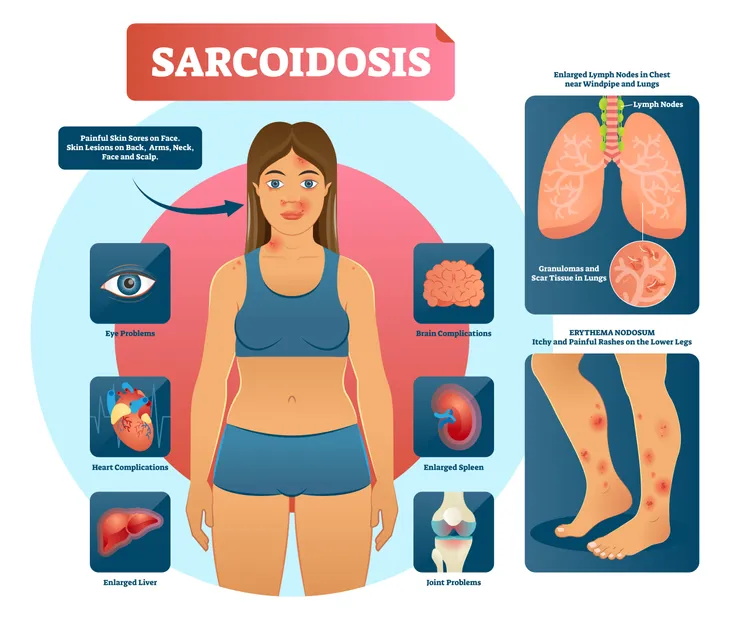Dry mouth (medically known as xerostomia) may not be a particularly painful health matter, but for those who deal with the condition, it is both irritating and concerning. The question is, what causes this condition to emerge?
In most cases, the answer depends on the individual and their lifestyle choices. The good news is that making some minor lifestyle changes could help remedy the situation and stop dry mouth in its tracks for good…
1. Brain Trauma
Damage to the brain through trauma, stroke, or the onset of serious health conditions, such as Alzheimer’s disease, can lead individuals to feel like they are suffering from a dry mouth. However, in many cases, it’s the damage to the brain that is causing this feeling, meaning saliva production remains normal.
If someone close to you has recently experienced a health event affecting their brain and regularly complains about having a dry mouth, talk to a doctor to see if it’s the result of brain damage or related to decreased saliva production.
2. Cancer Treatment
There are few more frightening things in life than a cancer diagnosis. Part of this fear is related to the fact that many treatments used to treat cancer take a toll on the body. In fact, researchers from the National Institute of Dental and Craniofacial Research have found that dry mouth is a common side effect of many chemotherapy drugs.
This is because those drugs affect the production of saliva in the mouth. The good news is that this is often temporary, with production of saliva returning to normal once the body adapts to the treatment or the treatment is completed. Of course, this will vary from case to case.
3. Methamphetamine Use
One of the most dangerous new illegal drugs is methamphetamines, which are often produced by combining a wide variety of volatile chemicals. One of the many side effects of using methamphetamines is a dry mouth, according to the American Dental Association (ADA).
In fact, dry mouth is so common in users of methamphetamines that the condition is often referred to as “meth mouth.” Unfortunately, the condition won’t go away until someone stops using this very dangerous and illegal drug.
4. Medication
If you’re experiencing an annoying bout of dry mouth, ask yourself this important question: Did you just switch to a new medication? Dry mouth is a common side effect of many prescription medications, particularly those used to treat depression, nerve damage, anxiety, and even common seasonal allergies.
If it is a result of the medication, do not stop taking the medication abruptly without first discussing the matter with your doctor.
5. Using Tobacco
There are many reasons to avoid smoking or chewing tobacco, from difficulty breathing to the threat of development of lung cancer. One of the more minor, though frustrating, side effects of tobacco use is a dry mouth.
Dry mouth can develop if one smokes or chews tobacco. The good news is that terminating the use of tobacco can help the body begin to produce saliva at a normal rate, leading to the eventual elimination of the problem.
6. Snoring
Snoring, unlike most other health conditions, is remarkable in that it can affect the people around the person suffering from the condition more than the actual patient. That’s because it often disturbs the sleep of others more than the person snoring!
That being said, many people who snore do regularly experience a dry mouth. The reason for this is simple. Compared to people who don’t snore, their mouths are open for much of the night which causes the mouth to become dry and irritated.
7. Getting Older
Finding the cause of dry mouth can often be simple. In some cases, all one needs to do is try a different medication or drink more water. However, sometimes the problem is related to age, and unfortunately, we can’t reverse the aging process.
Put simply, older people are more likely to experience dry mouth, for a variety of reasons. If you’ve seen your mouth become more dry over time, it’s important to talk to your doctor about the matter. Resolving the issue could be easier than you think.
8. Nerve Damage
According to WebMD, any kind of nerve damage that occurs to either the head or neck area, whether it be from injury or surgery, can potentially result in a bad case of xerostomia.
9. Dehydration
This one might seem pretty obvious, but dehydration is often the cause of a dry mouth. This dehydration doesn’t always result from not drinking enough water. While that’s often the main cause, there are others. The Oral Cancer Foundation writes, “Dehydration resulting from impaired water intake, emesis, diarrhea or polyuria can result in xerostomia.”
To avoid dehydration in the future, aim to drink at least eight glasses of water every day.
10. Sjogren’s Syndrome
There are several health conditions that can cause xerostomia, including diabetes, Alzheimer’s disease, stroke, or yeast infection, but the most common is Sjogren’s Syndrome (SS). This disease is a chronic inflammatory autoimmune disease that occurs in postmenopausal women, states The Oral Cancer Foundation.
While it’s not overly common, only about 3-percent of Americans suffer from it, with about 90-percent of all cases being women around the age of 50, it’s still something to be aware of. “SS is characterized by lymphocytic infiltration of salivary and lacrimal glands, resulting in xerostomia and xerophthalmia,” writes the source. “This combination is called the sicca complex. Enlargement of major salivary glands occurs in about one-third of patients with SS,” adds the source. Because there is no cure for this condition, the main form of treatment is to just manage the symptoms, one of which is xerostomia.
11. Other Systemic Diseases
In addition to SS, sarcoidosis, and HIV-associated salivary gland disease, there are several other systemic diseases that can cause xerostomia. The Oral Cancer Foundation includes a long list of conditions, including rheumatoid arthritis, systemic lupus erythematosus, scleroderma, diabetes mellitus, hypertension, cystic fibrosis, bone marrow transplantation, endocrine disorders, nutritional deficiencies, nephritis, thyroid dysfunction and neurological diseases such as Bell’s palsy and cerebral palsy, that can cause chronic dry mouth.
There are also hypersecretory conditions, such as primary biliary cirrhosis, atrophic gastritis and pancreatic insufficiency, that can cause chronic dry mouth. Mental conditions, such as depression, anxiety or stress, and hyperventilation can also lead to chronic dry mouth.
12. Sarcoidosis and Amyloidosis
These conditions are two chronic inflammatory diseases that have been known to cause chronic dry mouth, or xerostomia. Sarcoidosis is caused by a collection of tiny growths made up of inflammatory cells (granulomas) that can occur anywhere in the body, says the Mayo Clinic. It most commonly occurs in the lungs and lymph nodes. But it can also appear in the eyes, skin, heart, and other organs. According to The Oral Cancer Foundation, “Sarcoidosis, or noncaseating epithelioid granulomas, in salivary glands result in reduced salivary flow.”
On the other hand, amyloidosis is a rare disease that occurs when amyloid, an abnormal protein, builds up in the organs. This protein is produced by the bone marrow, but can be deposited in any tissue or organ in the body, explains the Mayo Clinic. The organs that are targeted are different for every person, but most often it’s found in the heart, kidneys, liver, spleen, nervous system, and digestive tract. Patients with amyloidosis can suffer from chronic dry mouth. “In amyloidosis, amyloid deposits in the salivary glands result in development of xerostomia,” writes The Oral Cancer Foundation.
13. HIV-Associated Salivary Gland Disease
Human immunodeficiency virus (HIV)-associated salivary gland disease, also referred to as HIV-SGD, is commonly associated with xerostomia. This is because the two go hand in hand. People who have HIV-SGD will also suffer from chronic dry mouth, according to a review published in the journal Oral Surgery, Oral Medicine, Oral Pathology, and Oral Radiology.
The condition mostly affects children and causes the “enlargement of the parotid glands and, occasionally, the submandibular glands, resulting in xerostomia,” explains The Oral Cancer Foundation.
















